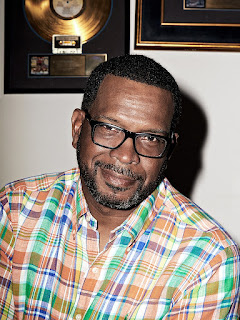 |
| Weed Hall at UMass Lowell (photo by Ktr101 CC BY-SA 3.0) |
According to Patch, the University of Massachusetts Lowell sent a letter to students and faculty last week saying that it could not suspend a student tied to a neo-Nazi, hate group simply because of the association. At the same time, the university pledged to investigate specific threats, alleged crimes, or incidents of hate speech, and to enforce the Student Code of Conduct.
The student in question appeared on a live-stream posted on Telegram, and re-posted to Twitter by a watch group, with the founder of "NSC-131," an organization founded in opposition to Black Lives Matter and identified as a hate group by the Anti-Defamation League, Patch reported earlier this month.
A Change.org petition, with more than 11,000 signatures at the time of this writing, accuses UMass Lowell of being "blatantly permissive of not only racism and hate speech (which they state is protected under Freedom of Speech) but outright criminal activity and Neo-Nazism" in protecting the student. The petition accuses the student, by name, of having violated already the Student Code of Conduct and, through alleged participation in the January 6 Capitol riot, the state vandalism law. Patch reported the appearance of NSC-131 at the Capitol riot, but no personal involvement by the student.
I appreciate the university's principled free speech stance—so far. I hope the university does not cave to pressure and remains cognizant of the First Amendment's vital anti-majoritarian and "safety valve" functions. It is crucial, especially in combating hate, that we refrain from prosecuting thoughtcrime, or its mere expression, else we are no better than the haters.
The problem with instruments such as the Student Code of Conduct is that they're easily applied unconstitutionally, regardless of whether they're facially constitutional. The code in question, for example, calls on students to show "respect and protection for persons and property," and respect is defined as "acting to enhance the safety, well-being and freedom to allow all persons to pursue their legitimate aims," including all persons, i.e., "non-community members,"
The code stops short of defining a specific offense for lack of respect. Rather, "interpersonal misconduct" includes
creat[ion of] an intimidating, hostile, or offensive working or academic environment. A single, unusually severe incident may constitute intimidation, threats, or bullying. Any pattern of unwelcome conduct directed specifically at another person that threatens or endangers the physical or mental safety or property of that person (or a member of that person’s family or household) or creates a reasonable fear or intimidation of such a threat or action.
The code adds, "The University has special concern for incidents in which persons are subject to such conduct because of membership or perceived membership in a racial, ethnic, religious, gender, or sexual orientation group."
That definition comports with First Amendment restriction on anti-harassment law, as long as the definition is observed in its particulars. The terms refer appropriately and essentially to a "specific[] ... []other person" and to a "reasonable" response. Administrators do not always parse so finely. The Change.org petition encourages all readers to "file a report with student conduct," offering a link, regardless, it seems, of whether the filer has had any contact at all with the student of concern.
I have personal experience with administrators' loose understanding of academic freedom. The "Principles of Employee Conduct" for the UMass System call on UMass employees "to conduct themselves in ways that accord respect to themselves and others." That might sound merely aspirational. But I was once adjudged guilty of violating the policy for accusing staff of misfeasance. There was no contention that I was wrong on the facts. But I was threatened with firing, despite my tenure. No punishment was imposed after I pledged to sue in my defense—not a bluff.
In 2017-18, I served as a faculty delegate on an ad hoc campus committee formed at the behest of the campus chancellor to create an "anti-bullying" policy. We faculty delegates agreed that workplace bullying was already impermissible under existing policies and state law. The university seemed interested in having specifically an "anti-bullying" policy principally just to say that it does. So we drafted a proposal that was substantively duplicative of existing norms, mindful of the First Amendment and academic freedom, and added a detailed procedure that would protect faculty in the event of ill founded and opportunistic accusation by administrators.
That, apparently, was not the right answer, because our proposal was buried in the bureaucratic bog. Now I've been asked to serve on a committee again, in the next academic year, to do the work over, for a new chancellor. Maybe we'll get it "right" this time.



















